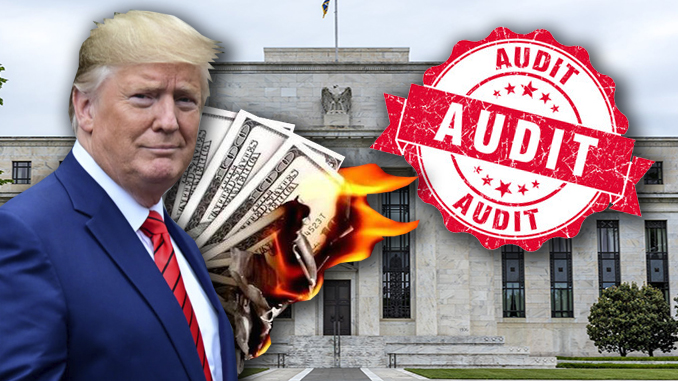
The only real way to guarantee America’s economic future is to audit, then end the Federal Reserve.
By Dr. Ron Paul
Listening to the howls from Democrats and the applause from Republicans, one would think President Donald Trump’s proposed fiscal year 2021 budget is a radical assault on the welfare state. The truth is the budget contains some minor spending cuts, most of which are not even real cuts. Instead they are reductions in the “projected rate of growth.” This is equivalent of saying you are sticking to your diet because you ate five chocolate chip cookies when you wanted to eat 10.
Trump’s plan reduces the Education Department’s budget by nearly 8%, leaving the department with “only” $66.6 billion. Cuts to other departments are similarly small, while reductions in entitlement spending consist mostly of reforms that will not affect most dependent on them.
Trump deserves credit for proposing an $11.6 billion cut in funding for the Department of State and the U.S. Agency for International Development (USAID). Foreign aid does little to help impoverished people overseas. Instead, it benefits foreign government officials willing to do the U.S. government’s bidding. The State Department and USAID are extensively involved in U.S. meddling abroad, including “regime change” efforts.
Trump’s budget proposes a number of increases in spending. For example, his budget spends around $900 million on vocational education. It also includes additional spending on items including infrastructure and childcare.
Few in D.C. have expressed concern over the fact that Trump’s $4.8 trillion budget proposal is the largest budget in American history. There is also little outcry from supposedly antiwar progressive Democrats over Trump’s proposal to spend hundreds of billions of dollars on militarism. This is not surprising, as many progressives are happy to support increased warfare spending as long as conservatives go along with increased welfare spending.
Similarly, many conservatives are happy to support increased welfare spending as long as it means that progressives will vote for increased warfare spending. So, Congress is unlikely to approve any of Trump’s spending cuts, but Congress is expected to gleefully agree to all of his spending increases.
Even if Congress agrees to all of Trump’s cuts, federal deficits will still be over $1 trillion for the next several years. However, Trump claims the budget will balance in 15 years. In order to show a balanced budget by 2035, the administration assumes 3% economic growth for most of the next decade. This level of growth is unlikely. Instead, the current boom will likely end soon, and the economy will experience another major recession. Signs that we are on the verge of a downturn include rising homelessness and the Federal Reserve’s bailout of the repurchasing market.
The current economic boom is built on debt, and the debt-based economy is facilitated by the Federal Reserve’s easy money policies. The massive amount of debt held by consumers, businesses, and especially government is the main reason the Fed feels compelled to maintain historically low interest rates. If rates were to increase to market levels, government interest payments would be unstable. This would cause the government debt bubble to burst, leading to a major crisis. However, continuing on the current path of low interest rates will inevitably lead to a dollar crisis and a collapse of the welfare-warfare Keynesian system.
Continuing to waste billions on wars abroad and failed programs at home while pretending that we can avoid a crisis via phony cuts and Fed-fueled growth will only make the inevitable collapse more painful. The only way to avoid economic disaster is to cut spending and audit, then end, the Federal Reserve.
Ron Paul, a former U.S. representative from Texas and medical doctor, continues to write his weekly column for the Ron Paul Institute for Peace and Prosperity, online at www.ronpaulinstitute.org.





